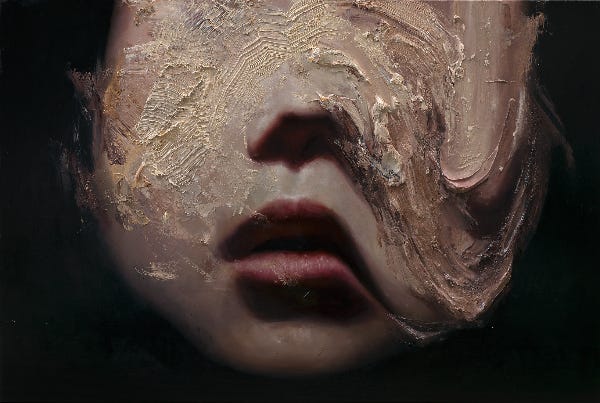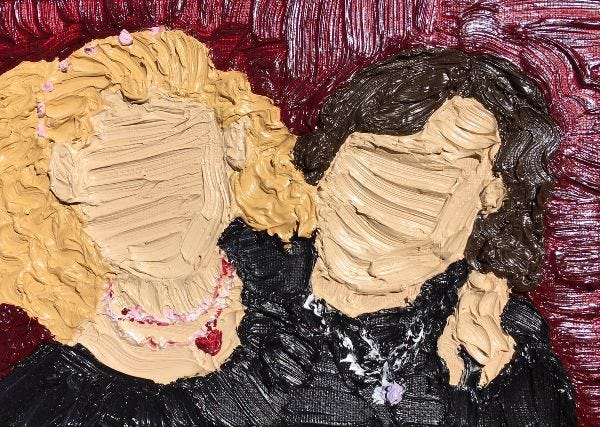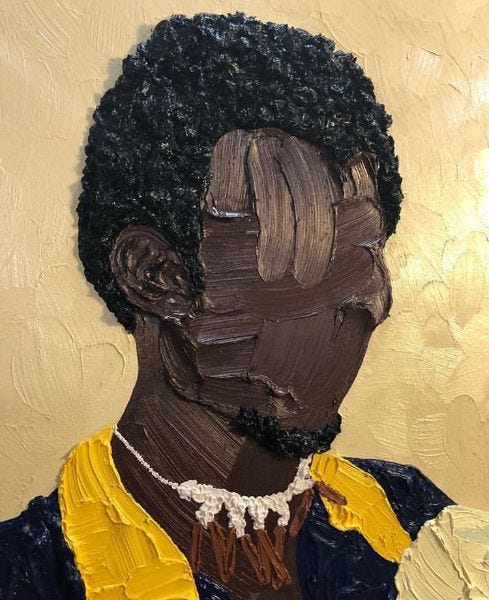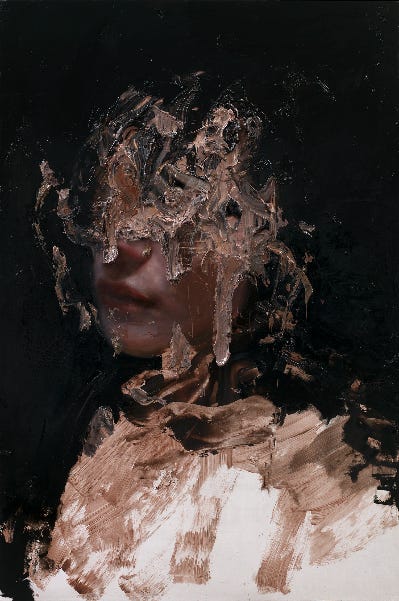self portrait of a liar
There is something absurd about utterly petty lies- "I'm almost there", "It's alright", "I'll be fine". These lies don't reflect an impulse or an intention... they'd almost be redundant if it weren't for our constant need to ease tension.
Tension. We've all shoved little lies of lateness under the carpet of a good vibe. Pretending something didn't happen is hoping it'll disappear. Hoping something will disappear is the same as lying, albeit only lying to ourselves.
Lies have a field of causes- boredom, restlessness, insecurity, infatuation, claustrophobia. I recall the number of times I have smiled at a man making me visibly uncomfortable, as if the onus of his displeasure was on me, as if my disconfort didn't exist.
"The camera is just as capable of lying as the typewriter," wrote Brecht. No sooner had photography been invented that it became inextricably connected with lying. A broader perspective is that lying and art spring from the same impulse to escape the mundane reality of things/life. I would argue that art is as much a form of lying just as is fiction. Editing pictures to look prettier than they are, writing stories more romantically than they manifest... I see lying as a productive medley of self flagellation and narrative bias. Nietzsche said it best: "The truly sincere person ends up understanding that he is always lying".
Are you sincere about lying?
Lying can be destructive, sometimes quite perversely so. Our lives on Instagram look curated- just enough to seem implausible, unattainable and yet, aspirational. Even depictions of sadness bring along beautiful imagery and captions - which is not to say, that on most days, we don’t feel like shit- just that we have mastered the art of lying about it. Perhaps, without intending to.
But here's the thing - the truth about 'the truth' is complicated. Our social media - a cesspool of images curated and handpicked from our life- may technically be a lie, bit the reaction to it is not. The reaction is real, and desirable.
When lying takes the form of cheating or alcoholism, its purpose is still rooted in the need to either, feel like you're in control, or loose control altogether. We cheat to smoothen the friction of a relationship, we drink to avoid that friction altogether. I believe lies with bigger stakes are only complex ways to handle difficulties inside us, without really acknowledging or fixing them. Because for one minute, just one minute, you want to feel in control of your narrative, rather than entirely subject to it. External infatuation turns to external affirmation, a rush that comes with a gamble of plausible destructibility. And although unarticulated, this cycle often begins to feel logical, while the guilt starts to evaporate.
What perplexes me is the ubiquitousness of a lie - we all do it, all the time. A truly honest conversation is cherished rarity, and yet, we all hoist our moral flags against lies. To be called a liar is insulting. And yet, you are as much a liar, as the person sitting next to you. Some lies are just more obscure than others. Sometimes, excessive sincerity is toxic.
My eyes keep wandering back to what Nietzsche said about sincerity in lying. I find myself convinced that limited sincerity in a lie is a good thing, sometimes even a necessary thing.
When I lie- I am a calm, collected pool of thought and intellect; someone who cares not just about herself, but the whole world, someone photographable from every angle, living a life full of beautiful streets and privilege. When I lie, I am not the woman looking for the worst in others or vivid reasons to be sad.. When I lie, I am everything I aspired to: self-sufficiency, independence, the opposite of needy.
What is lying supposed to bring about? It's certainly not bringing this woman I pretend to be, to life. However, in some dimension, for a limited time, lying helps me pretend that the woman I truly am does not exist. So much of us is constituted by the visions others have of us, and the expectations we in turn put on ourselves, that lying about who we are feels easy.
When I walk into a room full of people, I am aware of how much of the woman I am today is constituted by how this room will see me, and what they'll make of what they see. I am so aware … I am constantly, excruciatingly, so aware- that becoming a model of their perceptions feels no different from actually being that woman, anyway.
Lying is an art form. The liar's purpose is to disappear, to cast in his/her place, the person he/she wished to be, the person imagined for others to see.




